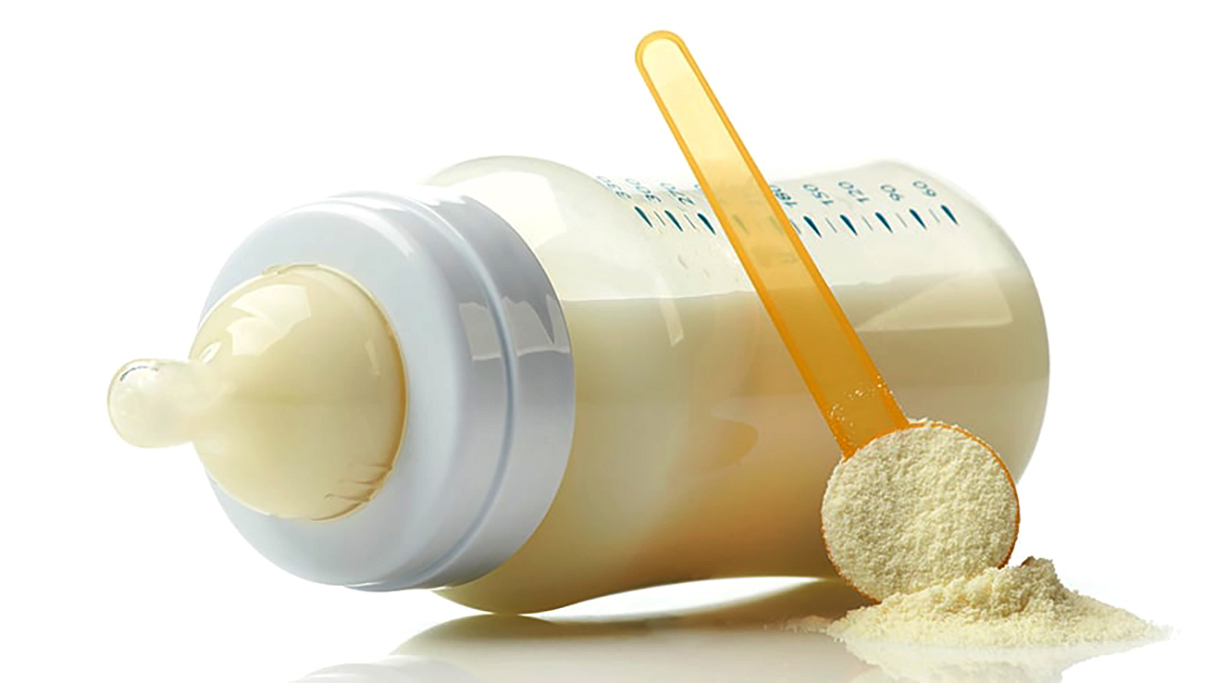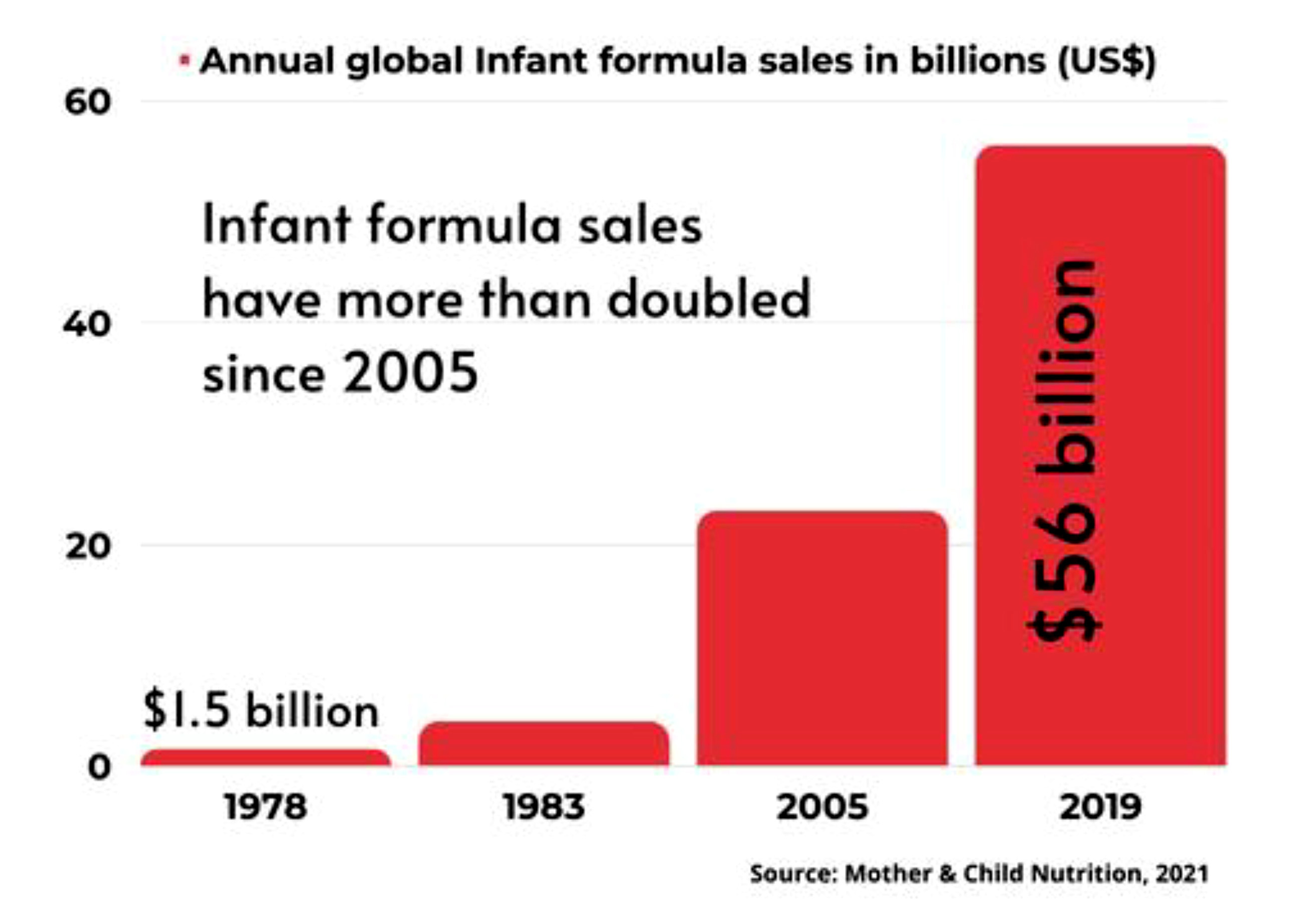International regulations and local laws bar formula companies from marketing directly to parents. Instead, companies are using the people you trust most – healthcare workers – to push their products and side-step regulations … and your nurse might not even know it.
Dr Chris van Tulleken recently bought a new knife sharpener. The University College London lecturer didn’t need one, he admits, but he couldn’t ignore the television advert.
“It said this new knife sharpener makes knives so sharp that, until recently, it was illegal for anyone who wasn’t a professional chef to buy one,” he explains. Van Tulleken was speaking at a recent webinar hosted by the British Medical Journal on Friday.
“It wasn’t until the product arrived at my house and started making my knives a lot less sharp that I started to question,” he continues, eyes narrowing, “whether it was true that chefs needed licences to buy knife sharpeners.”
The irony did not escape him.
Why marketing aimed at healthcare workers matters
BBC presenter Dr Chris van Tulleken explains why healthcare workers play an influential role in selling infant formula despite its risk.
When most of us think of marketing, we might imagine glossy magazine spreads or blaring radio adverts, but marketing directed at healthcare workers looks different. It can be as small as a free branded pen or free, sponsored breakfast symposium, and as major research funding, often through non-profit organisations aligned with corporations.
In 1981, more than 11 dozen countries, including South Africa, adopted the World Health Organization’s (WHO’s) international code to stop aggressive infant formula marketing that, for decades, targeted poor countries and increased infant and child deaths. The rise in deaths was partly because formula feeding without access to clean water puts babies at an increased risk of deadly diarrheal disease.
South Africa implemented local laws to enforce the code in 2015.
The code and local regulations may ban companies from publicly marketing infant formula or talking directly to parents. Instead, firms look to see how they can influence families through the people they trust most with their children’s health: Healthcare workers.
Your nurse is just another data point in a marketer’s spreadsheet
“Marketers are really good at understanding why you are buying in the first place,” says Katie Gilbert. Gilbert is the managing director at M&C Saatchi World Services, the social marketing arm of the advertising agency M&C Saatchi Group. Gilbert’s firm recently collaborated with the WHO to investigate infant formula marketing.
Early in her career, Gilbert had worked on campaigns selling frozen chips, but even then, she knew it wasn’t about the spuds.
“People aren’t buying frozen chips — they are buying happy meal times where children don’t grumble because they like what’s on their plate,” she explains. “If you have had a stressed-out day as a mom, a relaxing, peaceful mealtime is what you’re looking for.”
Why people buy a product is, in marketing science, one of five “category entry points” — or the reasons or situations that drive why we buy what we do.
Category entry points boil down to "why" we buy, “when” consumers buy a product, “where” they buy it, “with whom” they buy it and “with what” other products they might buy an item with.
And healthcare workers, she says, are a valuable category entry point because families trust their advice on infant feeding — and because new parents are vulnerable when they meet them.
“One of the most acutely vulnerable moments for parents is in the hospital post-birth,” she says. “Parents are tired and exhausted — first-time parents haven’t done this before … that’s a really stressful moment.”
Gilbert says if brands can get new parents to associate their infant formula products with easing that stress, that’s enough to get them hooked. And it’s also a brilliant sales strategy for another reason, she warns:
“If companies can get a mum or dad using formula milk in the first couple of days, that’s far more likely to disrupt milk supply, which makes breastfeeding difficult to do and therefore creates a need for their product.”
Visit Daily Maverick's home page for more news, analysis and investigations
Industry money shapes healthcare, but it’s not always easy to spot
In a web that includes industry-hired public relations firms, industry associations and obscure, industry-aligned non-profit organisations, it can be challenging for health worker bodies to spot formula industry funding, explains midwifery Professor Caroline Homer.
In 2018 and writing for the British Medical Journal, Van Tulleken uncovered how infant formula advertising tactics in the form of industry-drafted public education materials and sponsorship of doctors who drafted relevant national guidelines — fuelled a rise in prescriptions for specialised infant formula in the United Kingdom.
For his story, Van Tulleken contacted doctors in charge of major guidelines who had declared conflicts of interest like these.
All of the doctors said they agreed industry could influence healthcare workers. All of them also said they themselves had not been influenced.
Van Tulleken thinks back to his new knife sharpener: “Even the fact that I study how conflicts of interest affect the behaviour of healthcare professionals … didn’t protect me from a clever ad.”
/file/dailymaverick/wp-content/uploads/2022/09/MC-Formula-Milk_2-Breastfeeding-in-South-Africa-graphic.jpg)
Although South African law bars firms from showering healthcare workers with gifts or even the occasional free breakfast, it’s less strict about corporate sponsorship of professional healthcare associations — especially in the private sector.
Maverick Citizen has reported on several instances in which formula companies have allegedly fallen foul of marketing rules. Still, only one national health department official was tasked with monitoring compliance as of late 2021.
An August WHO report recommended that South Africa step up enforcement.
Haroon Saloojee heads the department of community paediatrics at Wits University. He says medical schools in South Africa largely aren’t teaching future healthcare workers about the international code or local regulations.
But he says it’s time to start organising health science students to take on the industry.
In the meantime, Gilbert says if more healthcare workers understand marketing tactics, they may be better able to steer away from conflicts of interest.
“This isn’t about restricting the product — any caregiver should have access to it if that’s what they choose,” Gilbert says. “It’s about an awareness [among healthcare workers] that you’re being used as a customer entry point for companies.” DM/MC






 A new WHO report looking for the first time at the marketing of breastmilk substitutes around the world describes 'systematic and unethical' marketing tactics by formula milk companies. (Photo: silverson.com / Wikipedia)
A new WHO report looking for the first time at the marketing of breastmilk substitutes around the world describes 'systematic and unethical' marketing tactics by formula milk companies. (Photo: silverson.com / Wikipedia) 